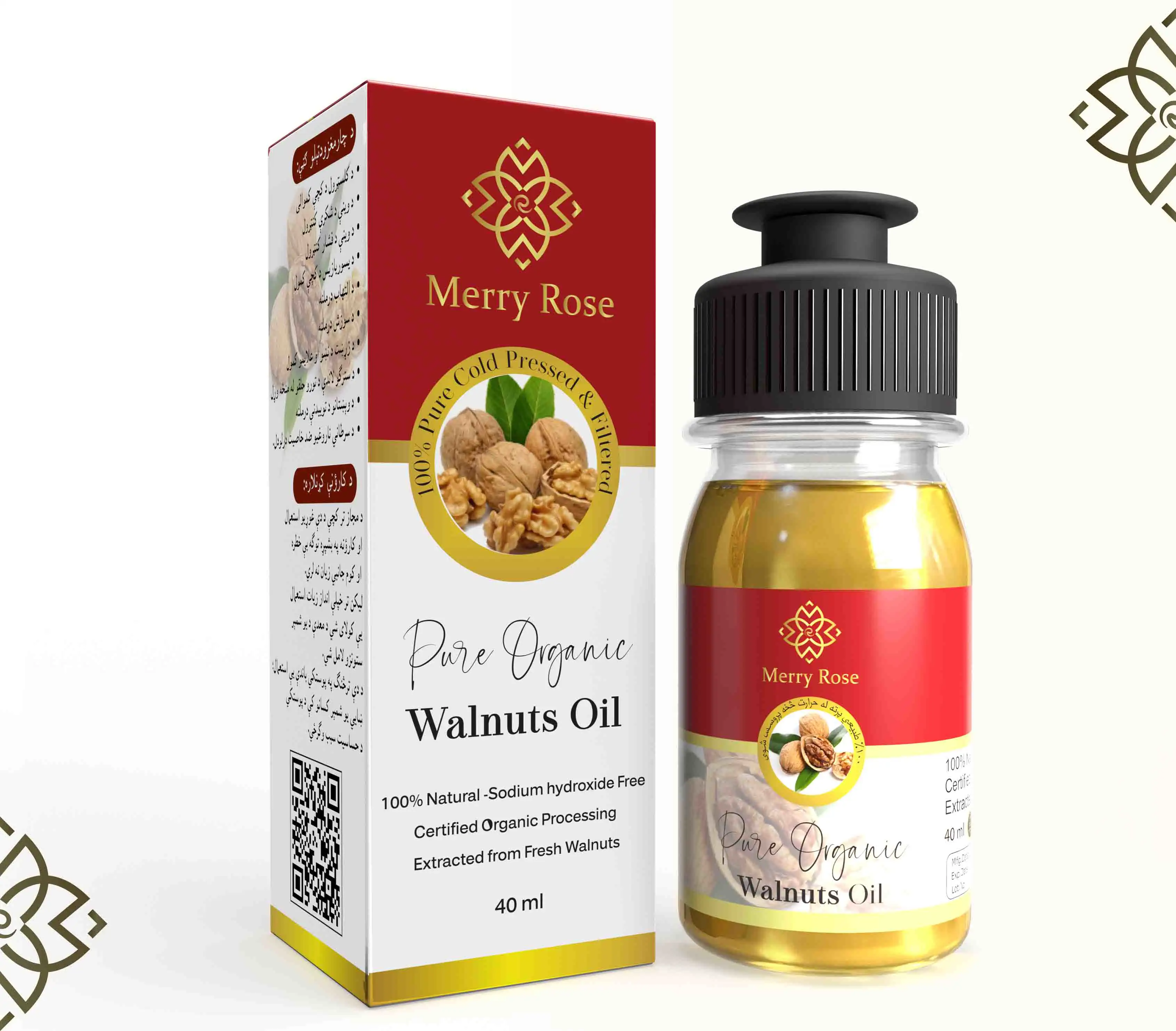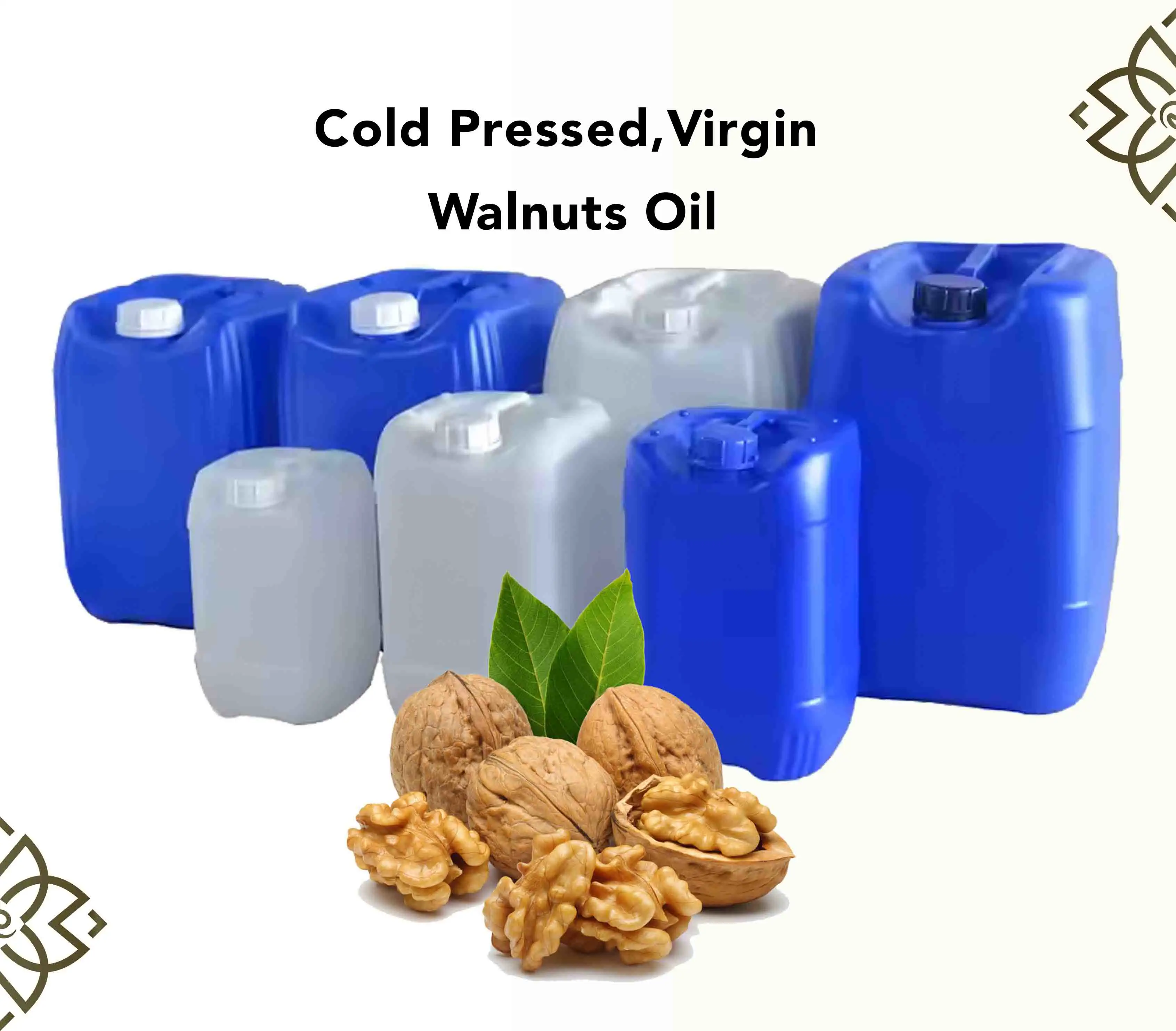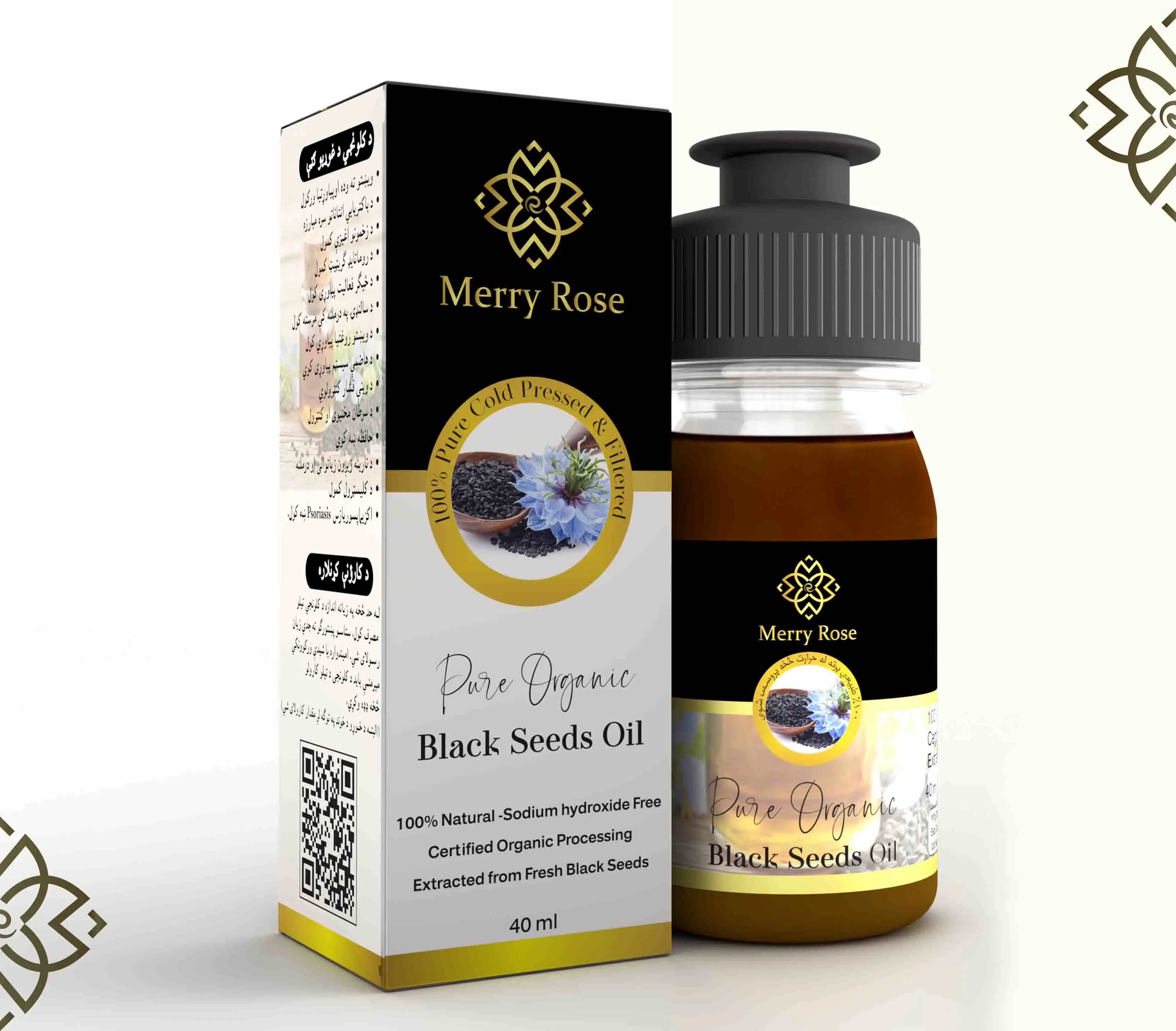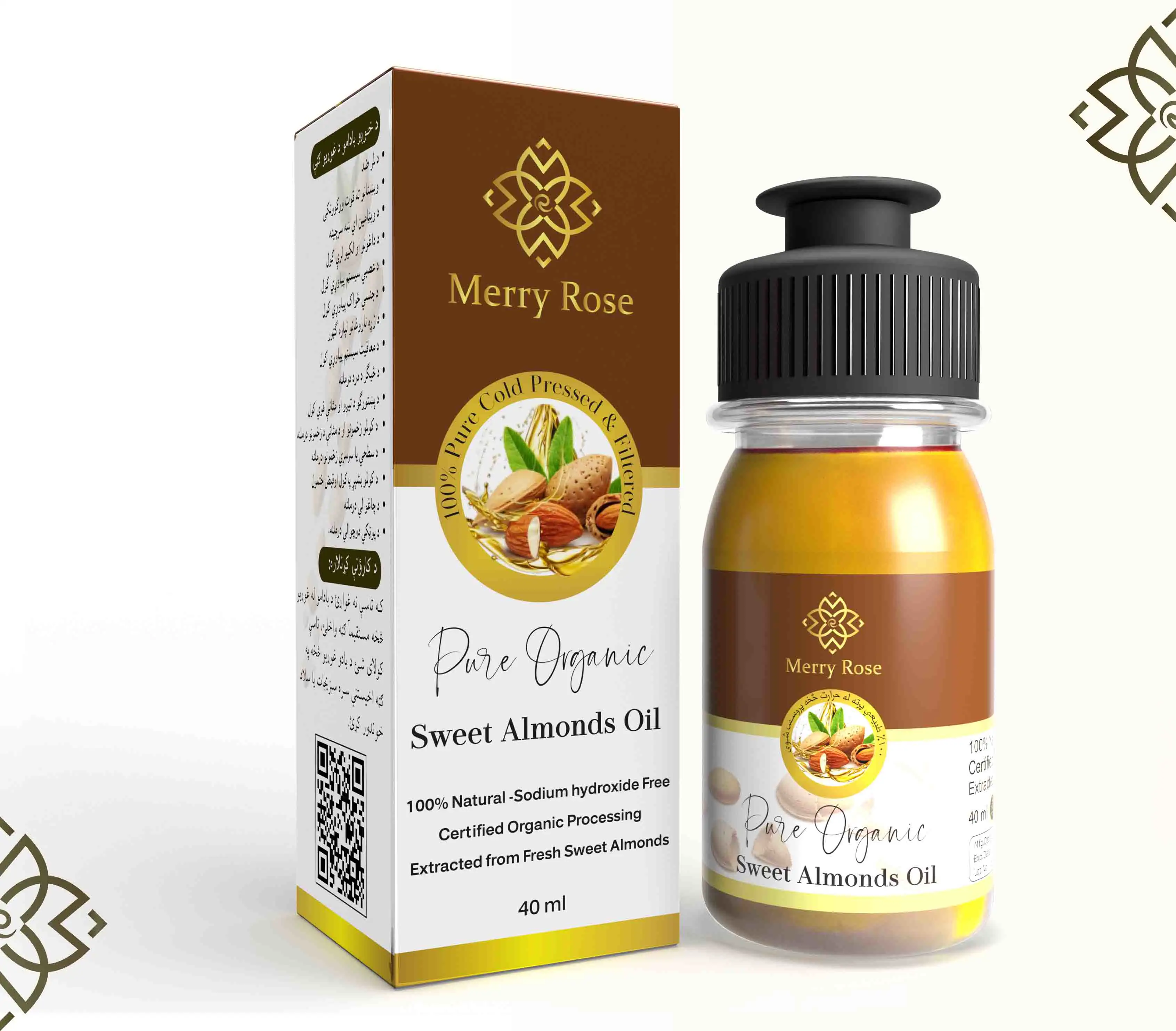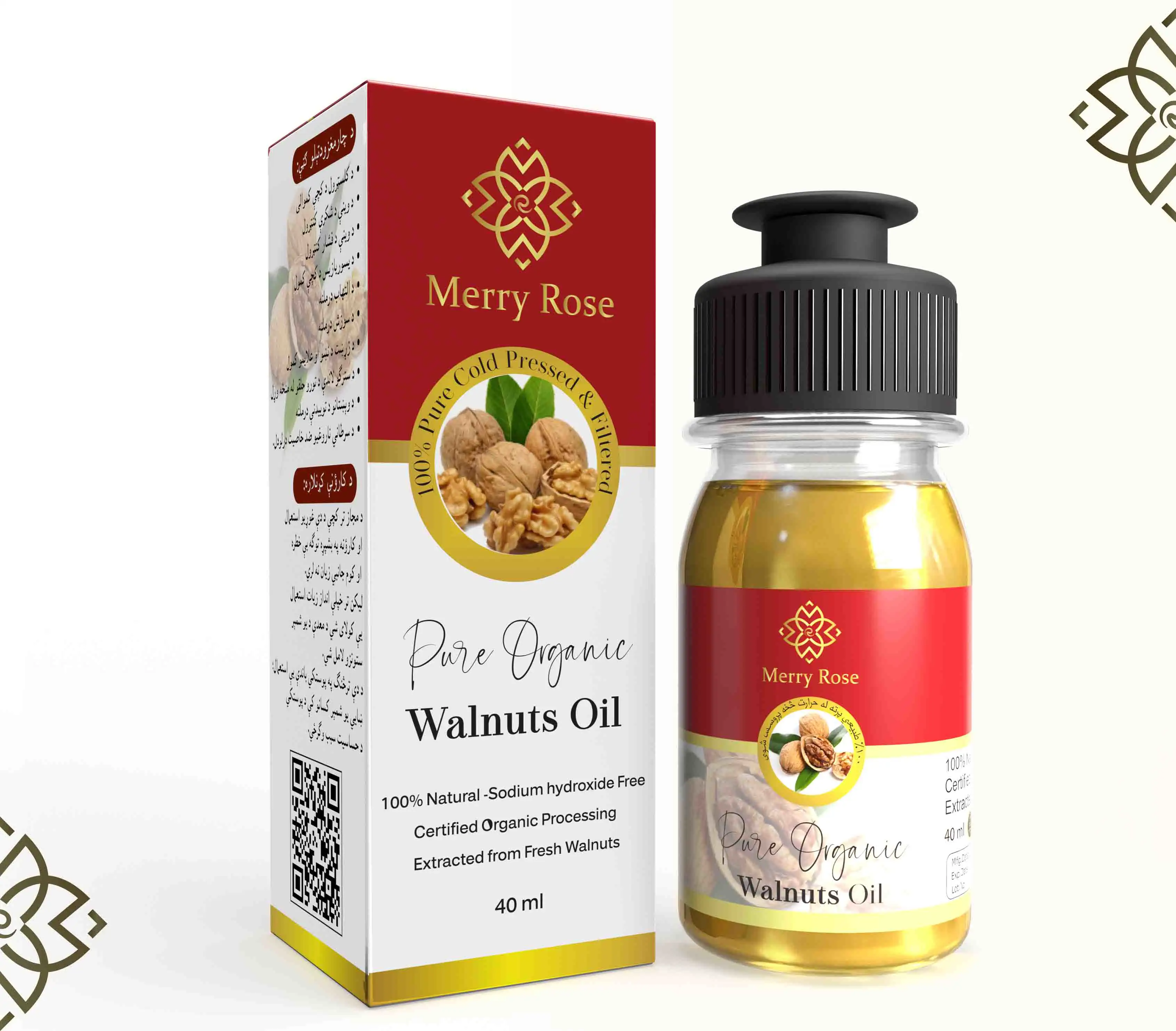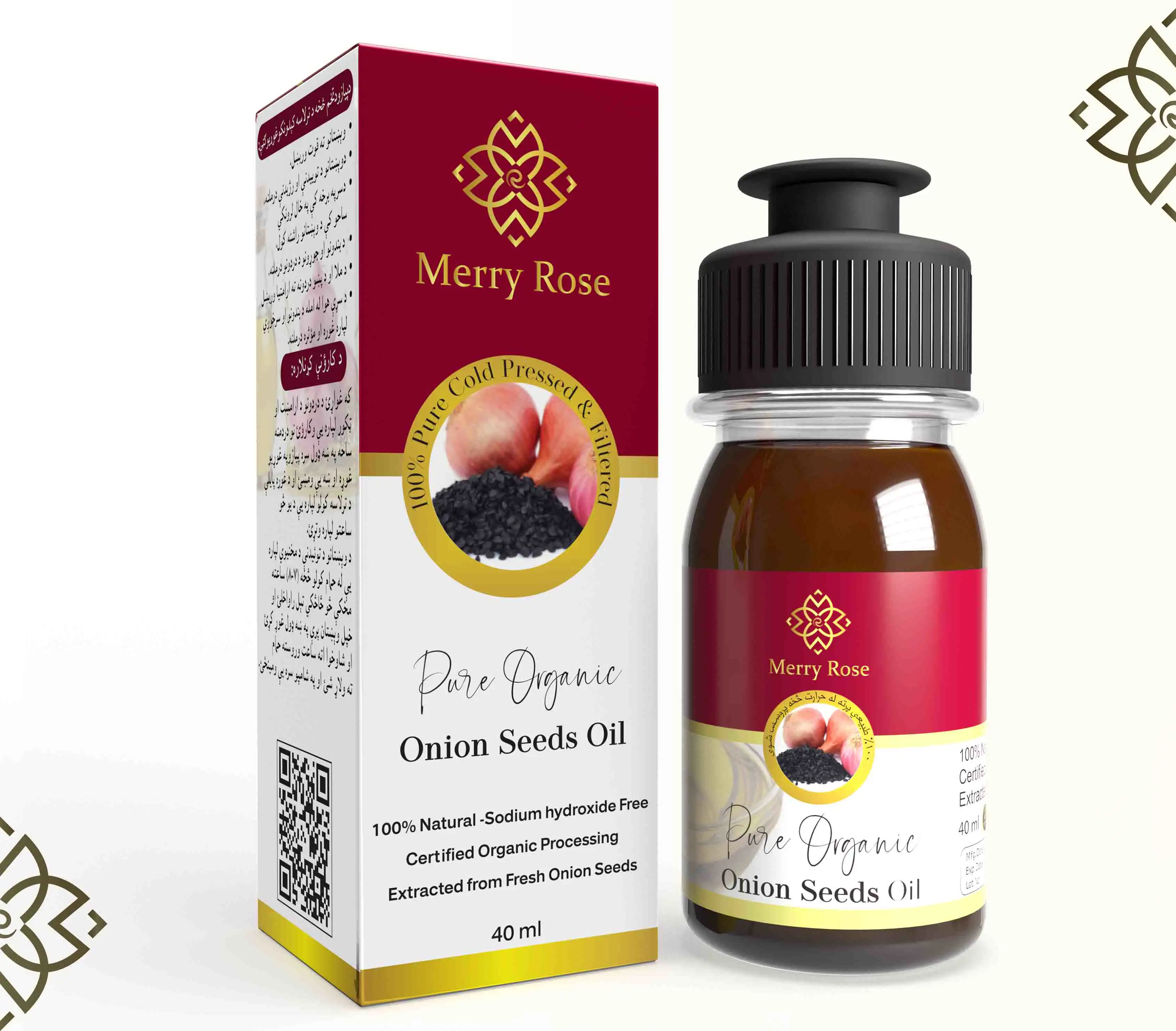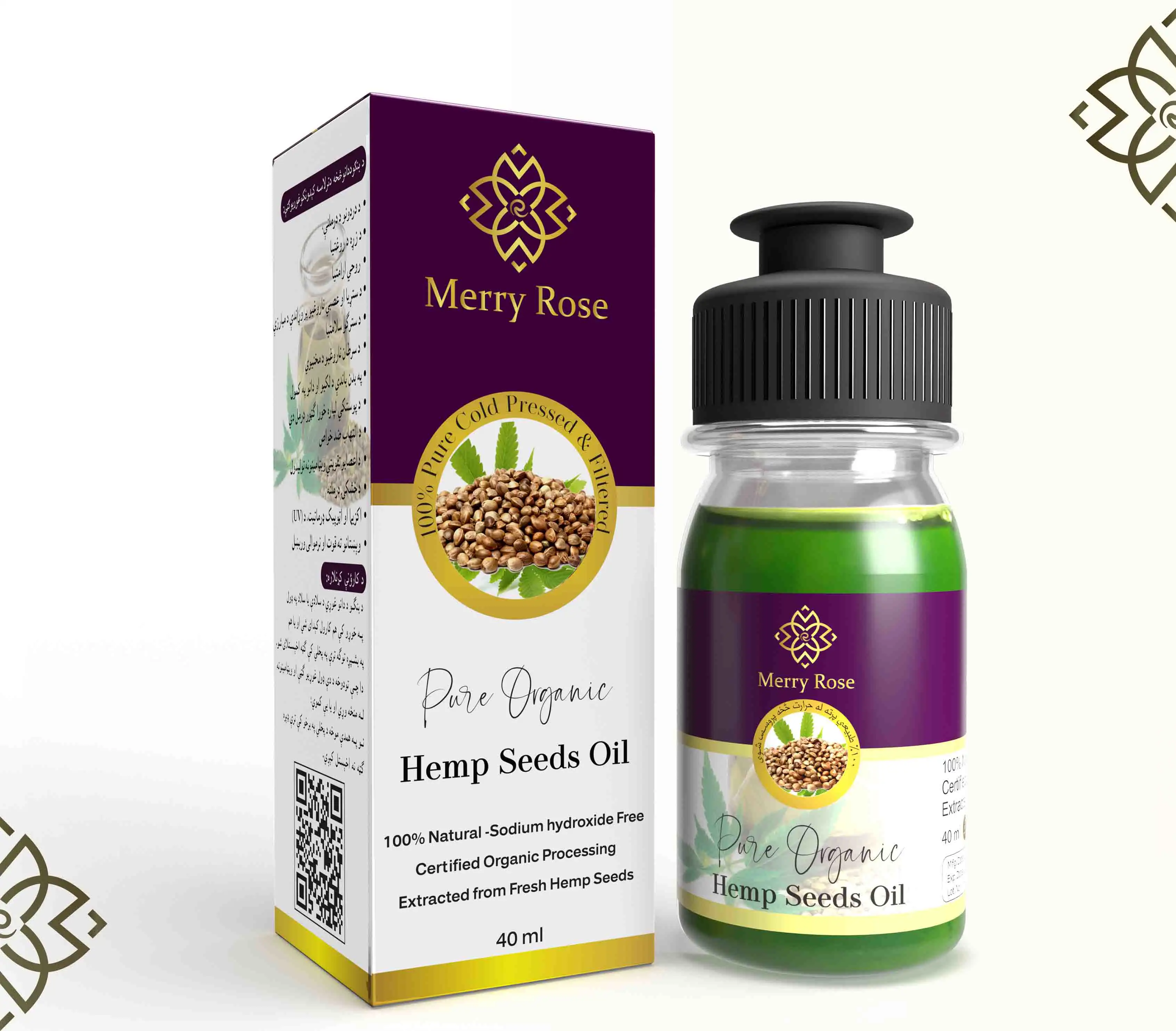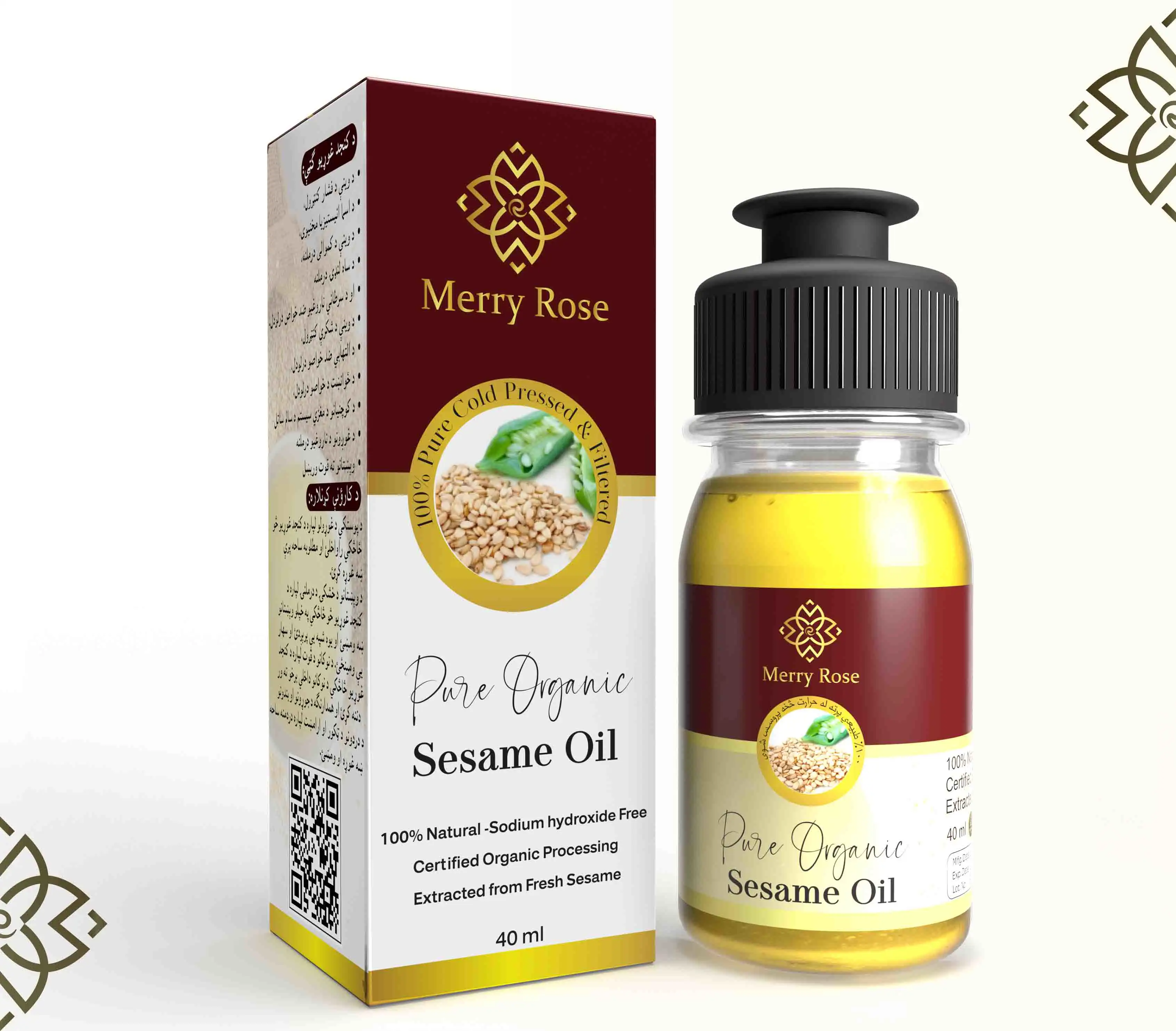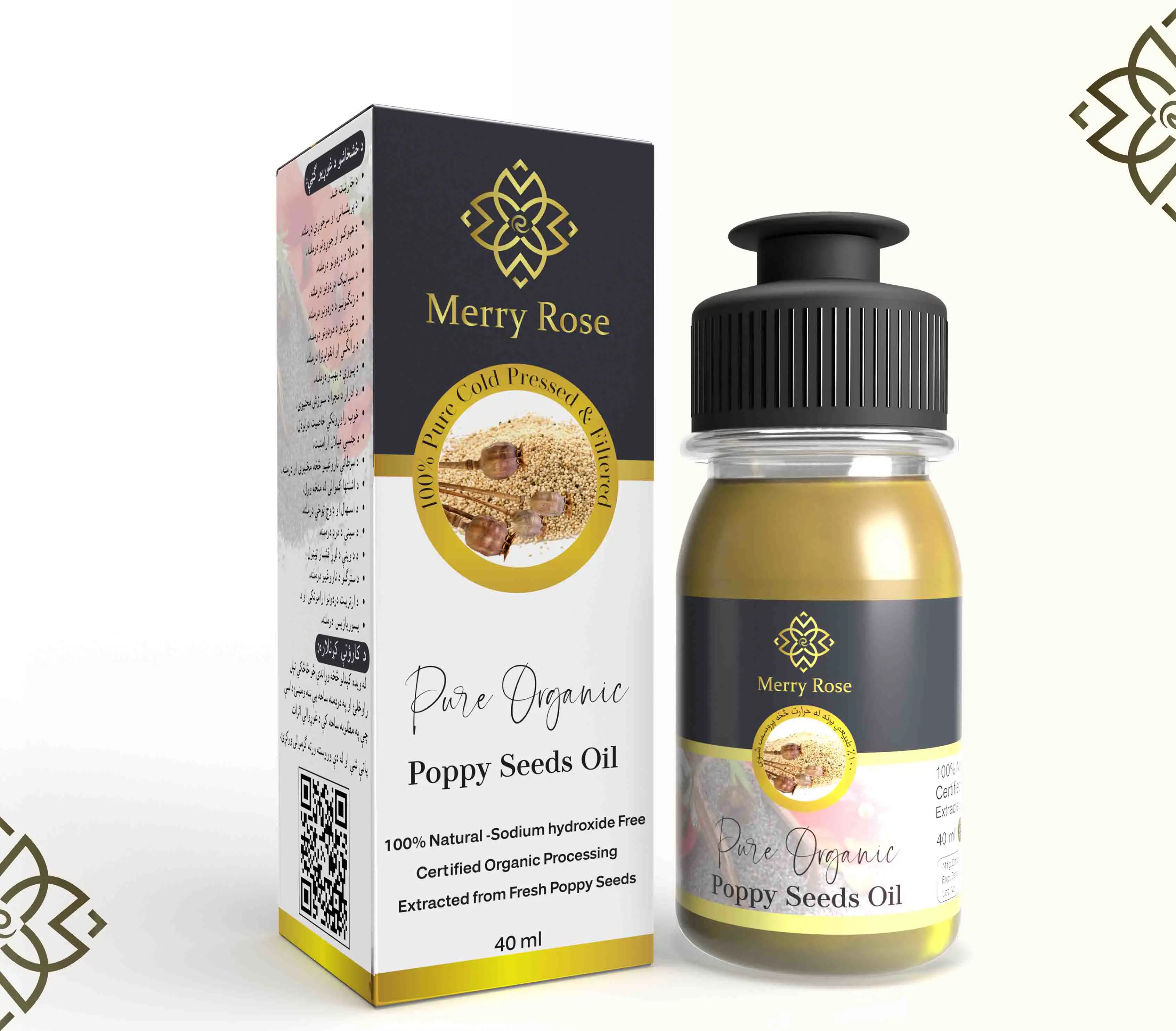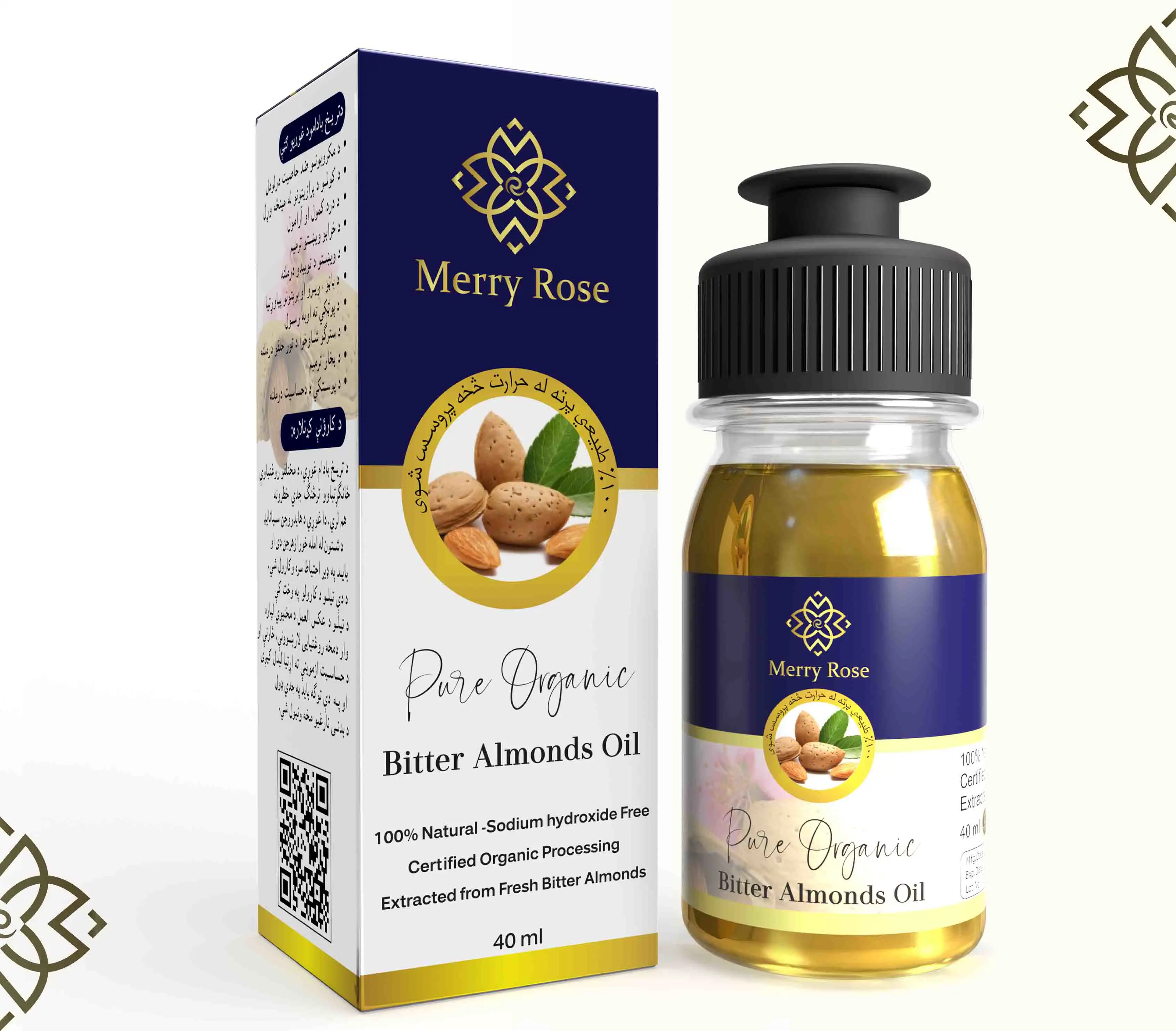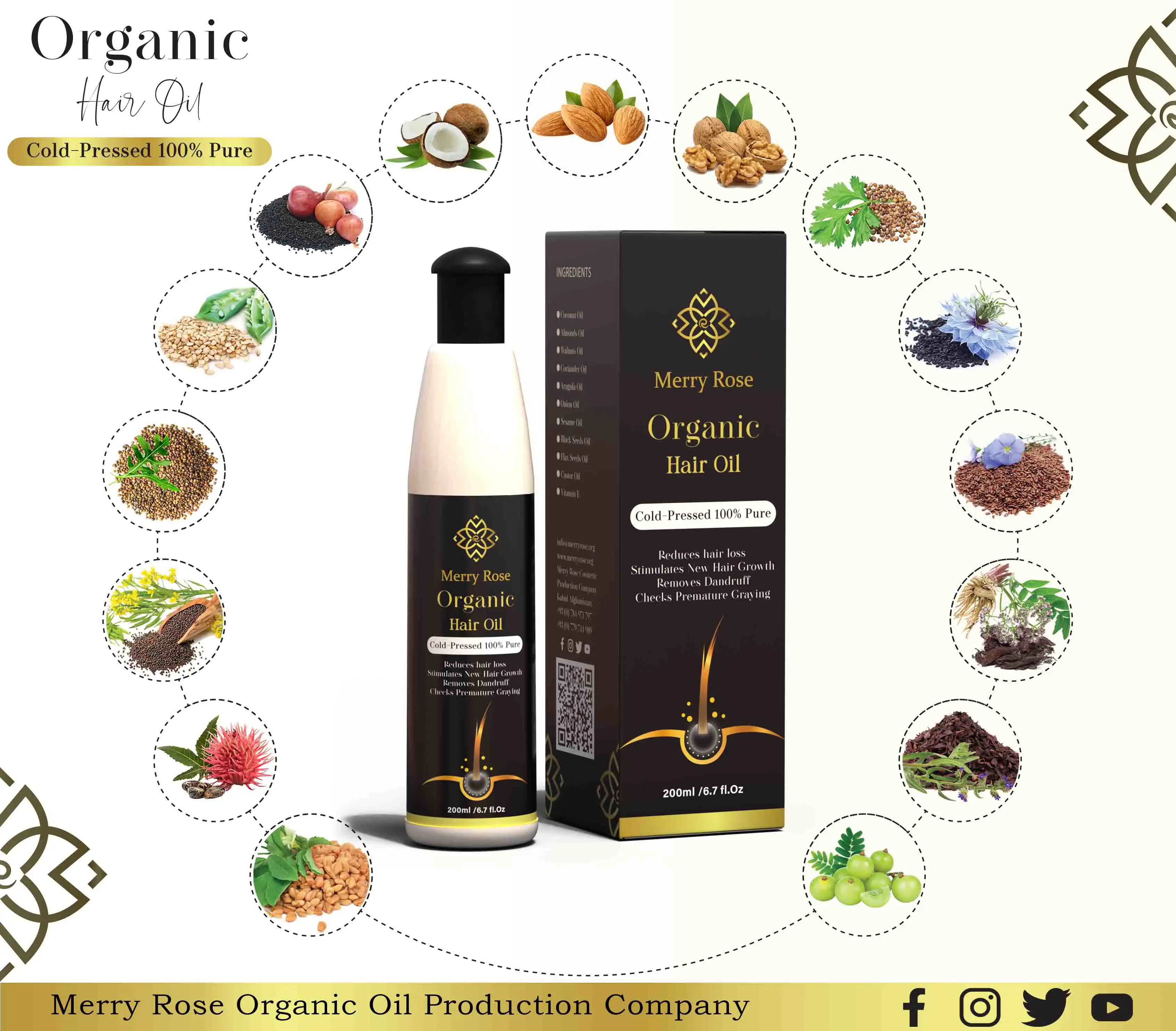
Walnut Oil
Consuming walnut oil may improve heart health, lower blood sugar, and have anticancer effects.
Walnut oil
100% Natural Unrefined
Sodium hydroxide Free
Certified Organic Processing
Extracted from Fresh Walnut
| Origin: | Afghanistan |
| Botanical: | Juglans Regia |
| Cultivated Methods: | Organic |
| Extraction: | Cold Pressed |
| Part: | Seeds/ Nuts |
| Colour: | Pale yellow to yellow liquid with Characteristic odor |
| Packaging: | Customized according to the customer's order |
Consuming walnut oil may improve heart health, lower blood sugar, and have anticancer effects.
Walnut oil is extracted by pressing whole walnuts.
It has a nutty, delicate flavor and contains some of the beneficial nutrients and compounds found in walnuts, including unsaturated fatty acids and plant compounds called polyphenols.
7 promising benefits of walnut oil.
Can boost skin health
The nutrients in walnut oil may promote good skin health.
One tablespoon (13.6 grams) of walnut oil contains more than 1.41 grams, just over the Dietary Reference Intake (DRI), of an omega-3 fatty acid called alpha-linolenic acid (ALA)
In your body, some ALA is converted into the longer forms of omega-3 fatty acids called eicosapentaenoic acid (EPA) and docosahexaenoic acid (DHA), which help form the structural components of your skin.
That’s why omega-3s, including those in walnut oil, may stimulate skin growth, fight inflammatory skin disorders, and promote wound healing.
What’s more, walnut oil contains high amounts of the omega-6 fatty acid linoleic acid (LA), the most predominant fatty acid in the outermost layer of your skin.
In short, consuming walnut oil boosts your intake of essential fatty acids that are vital to skin health.
May decrease inflammation
Adding walnut oil to your diet may fight chronic inflammation, which has been linked to heart disease, some cancers, and other health issues
One 6-week study in 23 adults with high cholesterol found that a diet high in ALA, one of the main fatty acids in walnut oil, decreased the production of inflammatory proteins in the body
Walnuts are also rich in polyphenols called ellagitannins, which your gut bacteria convert into other beneficial compounds
These compounds may have anti-inflammatory properties and act as antioxidants that fight cell damage caused by molecules called free radicals. This may explain why test-tube studies have found that walnut oil can fight inflammation and increase cell antioxidant activity
However, it’s unclear to what extent the beneficial compounds in walnuts are preserved during the processing of walnut oil. Some studies suggest that walnut oil contributes no more than 5% of the antioxidant activity of whole walnuts.
Thus, more research on the anti-inflammatory effects of walnut oil is needed.
Helps lower blood pressure
Walnut oil may help lower high blood pressure, one of the main risk factors for heart disease
Studies suggest that diets rich in whole walnuts can help lower blood pressure, likely because of their high levels of ALA, LA, and polyphenols. Given that walnut oil is also rich in these compounds, it may exert similar effects
One study in 15 adults with overweight or obesity and moderately high cholesterol levels found that consuming walnut oil significantly improved blood vessel function, which in turn could help lower blood pressure
However, more studies on walnut oil’s potential effects on blood pressure are needed.
Improves blood sugar control
Consuming walnut oil may improve poor blood sugar control associated
Over time, unmanaged blood sugar levels can lead to eye and kidney damage, heart disease, and stroke. Eating foods that lower your blood sugar, including walnut oil, can help prevent these complications
One study in 100 people with type 2 diabetes found that consuming 1 tablespoon (15 grams) of walnut oil daily for 3 months significantly lowered fasting blood sugar and hemoglobin A1c levels, which measure long-term blood sugar, compared with baseline levels
The beneficial effects of walnut oil on blood sugar control may be due to its high concentration of antioxidants, which can help fight oxidative stress associated with high blood sugar levels
Improves cholesterol levels
Regularly eating walnuts may help lower high blood levels of triglycerides and total and LDL (bad) cholesterol, which can otherwise increase your risk of heart disease
This may be due to walnuts’ high levels of omega-3 fatty acids and antioxidant compounds, both of which are also found in walnut oil
One study in 60 adults with high levels of triglycerides found that those who took a daily capsule containing 3 grams of walnut oil for 45 days had significantly lower blood levels of triglycerides, compared with their baseline levels
Based on these results, adding walnut oil to your diet may help reduce your risk of heart disease, but more research is needed.
May have anticancer effects
Certain compounds in walnut oil may help prevent the progression of some cancers.
Specifically, your body converts the ellagitannins in walnuts into ellagic acid and then further into compounds called urolithins.
One test-tube study found that urolithins may help regulate levels of prostate-specific antigen (PSA) — a risk factor for prostate cancer — and trigger cancer cell death
Consuming walnuts has also been linked to lower risks of breast and colorectal cancer in animal and observational studies
However, more extensive research focusing on the effects of walnut oil in humans is needed before conclusions can be drawn about its anticancer effects.
Easy to add to your diet
Walnut oil is easy to find and can be used in many ways.
It typically has a light color and delicate, nutty taste. The most high-quality walnut oils are cold-pressed and unrefined, as processing and heat can destroy some nutrients and lead to a bitter taste.
It’s not recommended to use walnut oil for stir-fries or high-heat cooking. Additionally, most walnut oils can only be kept for 1–2 months in a cool, dry place after being opened before going rancid.
The most common use for walnut oil is as an ingredient in salad dressings with vinegar and seasonings. It also tastes delicious drizzled over steamed vegetables.
You can find walnut oil at health food and specialty grocery stores, as well as online. It’s typically more expensive than other oils.
